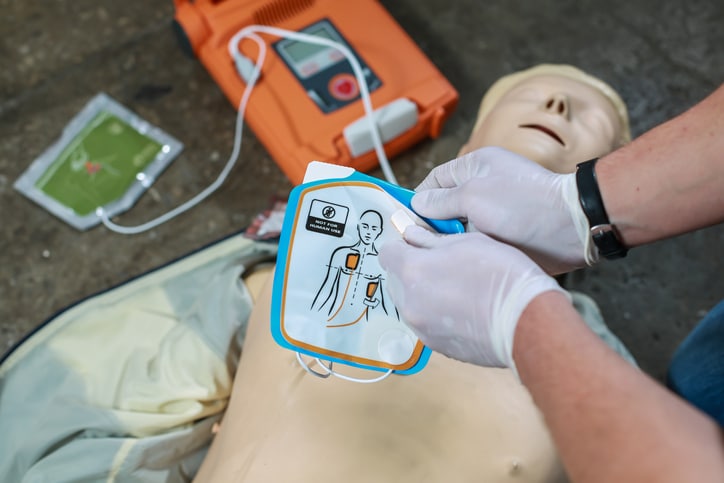As families come together over the holiday season, the ACT Emergency Services Agency (ACTESA) is encouraging the community to understand the importance of Call.Push.Shock to save a loved one’s life.
Every year, around 34,000 Australians and New Zealanders experience an out-of-hospital cardiac arrest. The heart stops beating, starving the brain and vital organs of oxygen.
Time is a critical factor: only one in 10 people survives.
For every minute that passes without intervention, the chance of survival decreases by 10%.
Once the heart stops pushing oxygen around the body and to the brain, the survival rate drops for anyone experiencing cardiac arrest. By the 10-minute mark, the damage to the brain is nearly irreversible.
ACT Ambulance Service (ACTAS) Chief Officer Howard Wren said 80% of out-of-hospital cardiac arrests happen in our homes.
“You could be responsible for saving a loved one. That’s why it’s important everyone understands Call.Push.Shock. It could make all the difference,” Chief Officer Wren said.
“A cardiac arrest can happen suddenly with minimal symptoms. The victim will lose consciousness, display ineffective breathing, and have no pulse. This can be terrifying for many bystanders, but your quick response will greatly improve their chances of survival.
“Call. Call Triple Zero (000) immediately. The sooner the call, the sooner help will arrive.
“Push. Start chest compressions as soon as possible by pushing down on the centre of the person’s chest hard and fast. Aim for a rate of two compressions per second.
“Shock. Send someone to collect the nearest automated external defibrillator (AED) if there is one nearby. Do not stop compressions to get an AED. To use, simply turn on the machine, and follow the instructions.”
A cardiac arrest can happen to anyone: a two-year-old child; a healthy and fit 23-year-old; a hard working 50-year-old; or a 75-year-old retiree. Ensure you are prepared and ready to Call.Push.Shock this holiday season.
A common misconception, Chief Officer Wren said, is that a cardiac arrest and a heart attack are the same thing, and that CPR will bring the victim back to life in both cases.
“A heart attack can be recognised hours or days before. The victim may experience chest pain, fatigue, weakness, and have difficulty breathing. If you suspect someone may be having a heart attack, call Emergency Triple Zero (000), and follow advice from Ambulance Service,” Chief Officer Wren said.
“However, a cardiac arrest requires a different response. That’s why we want the community to know what’s involved in Call.Push.Shock as well as CPR, so they are ready to respond to either emergency.”
For information and tips on Call.Push.Shock, visit www.esa.act.gov.au.
For more news:



